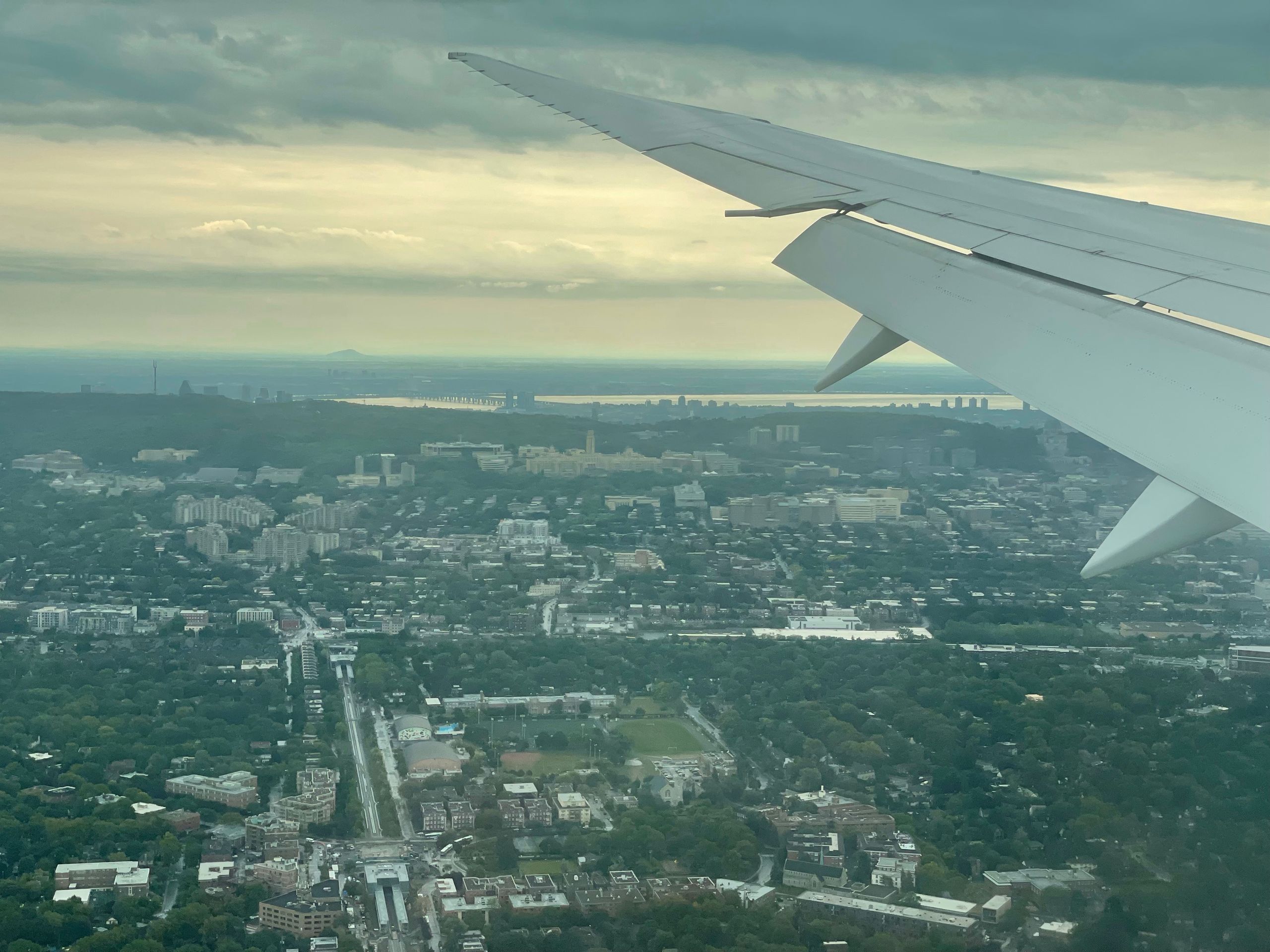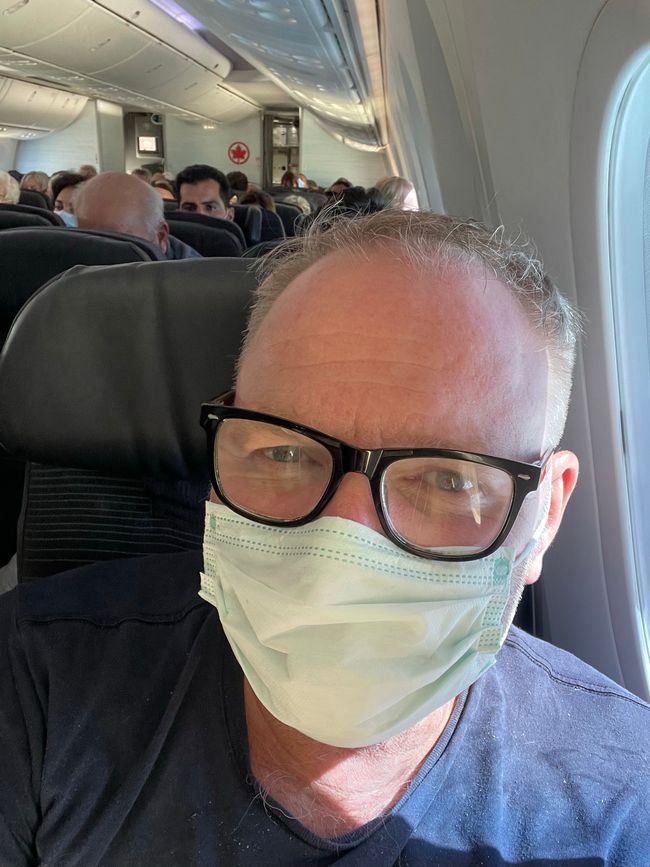Cap-Chat - Cap-des-Rosiers
ପ୍ରକାଶିତ |: 13.09.2021
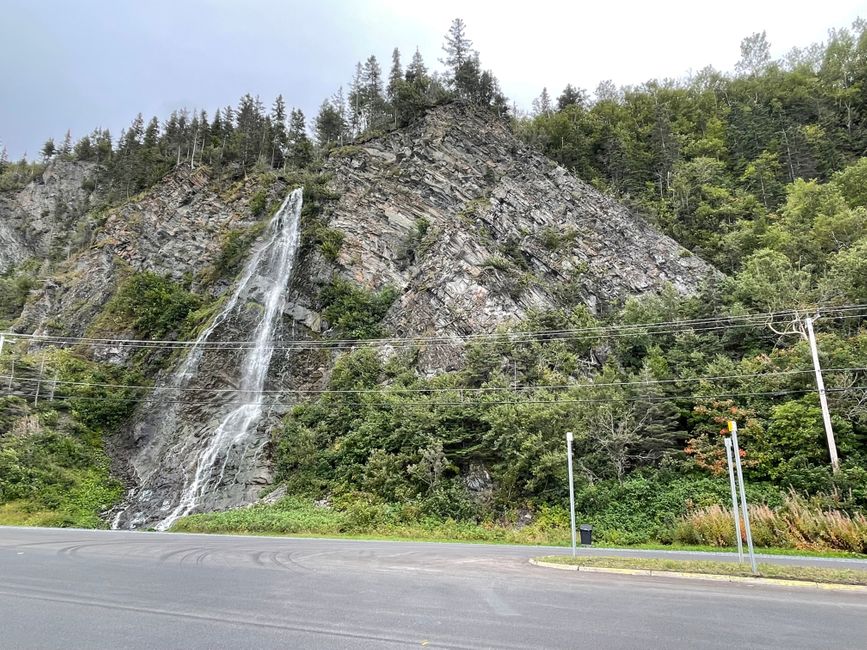
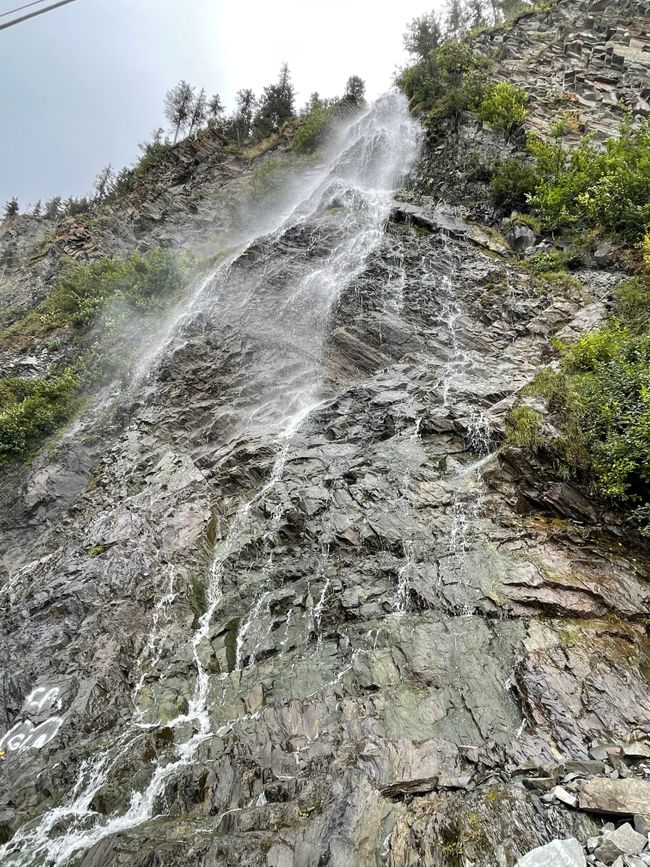
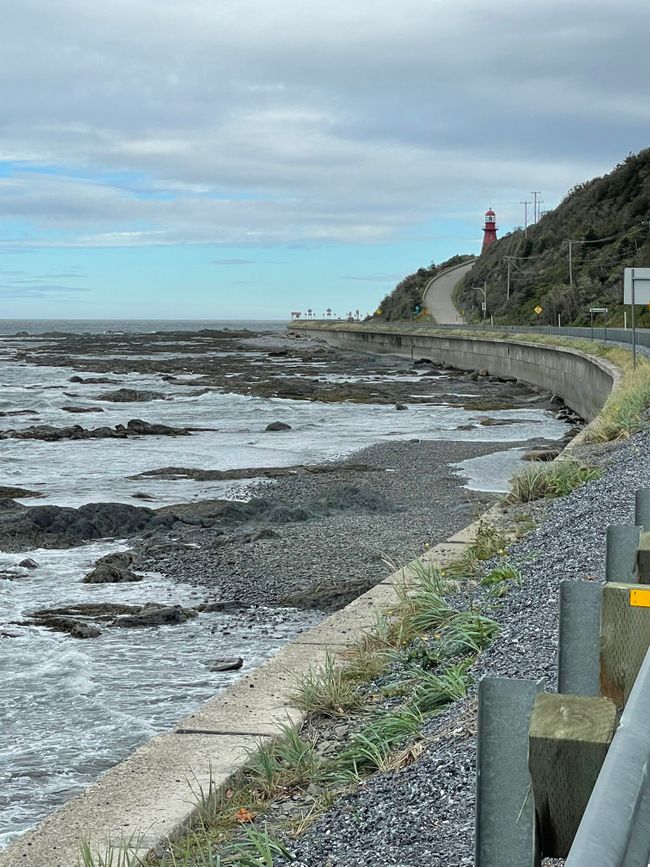
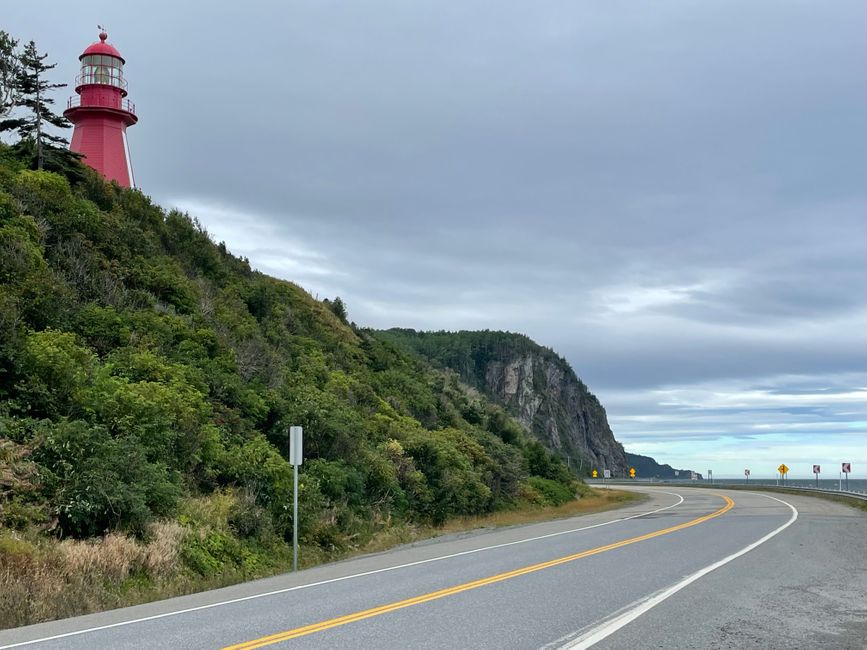
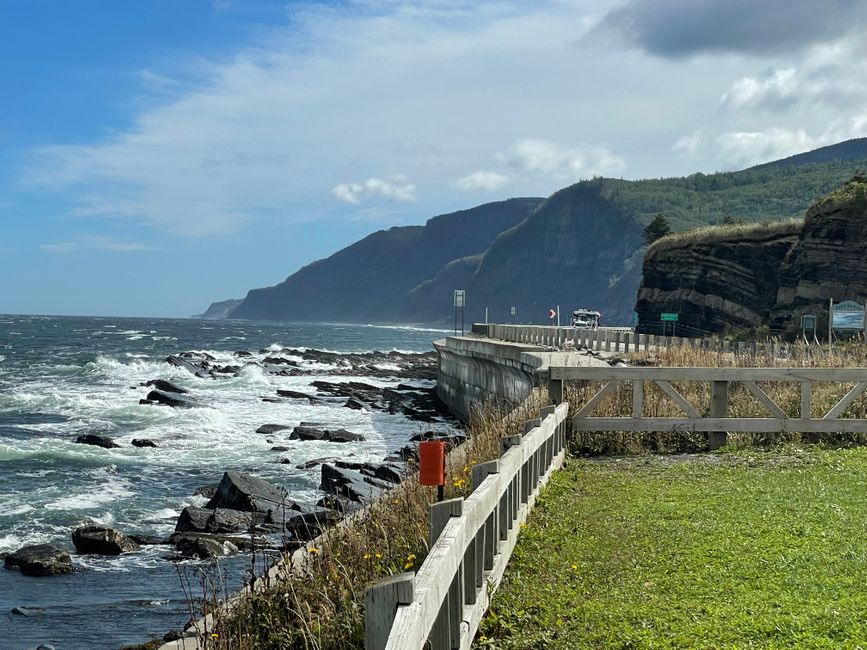
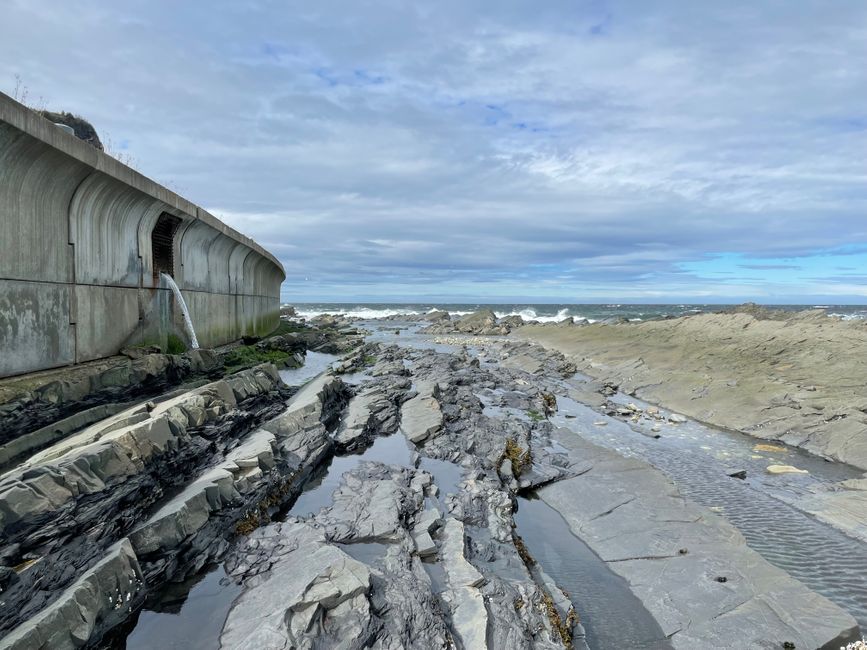
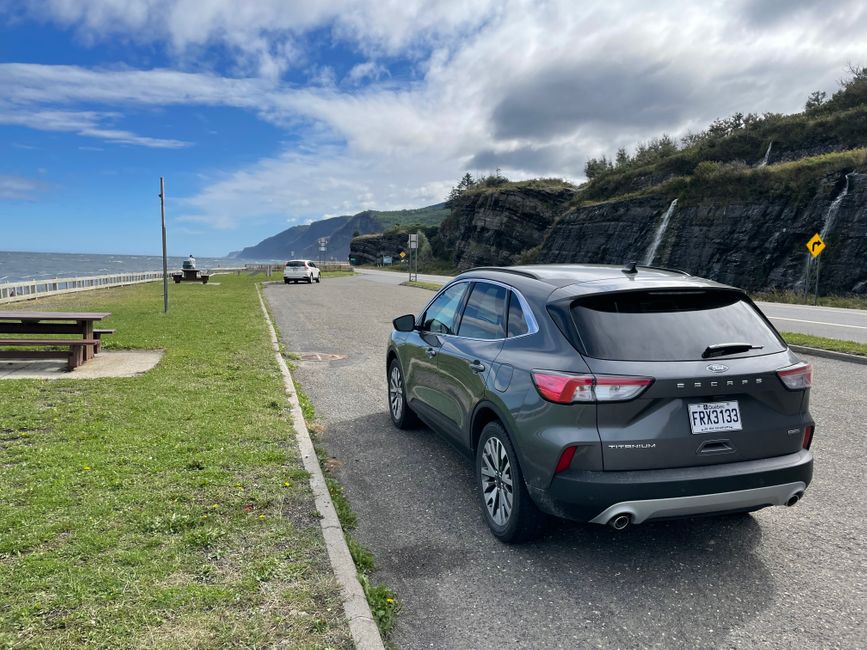
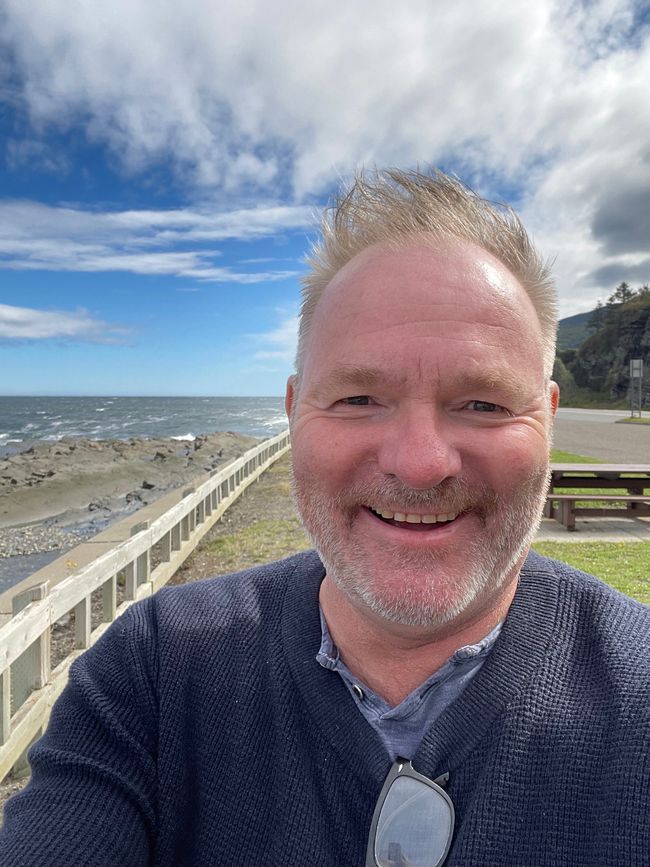
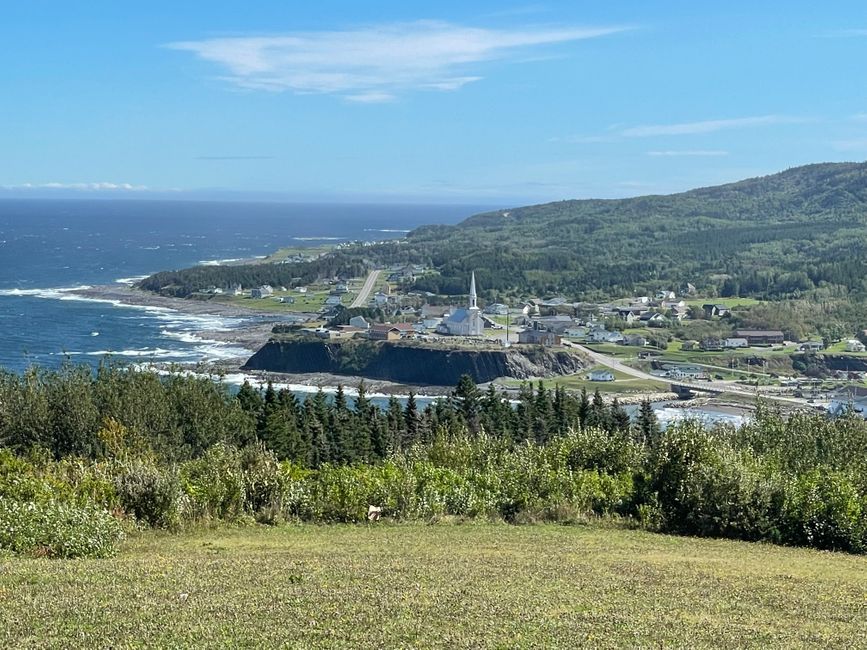
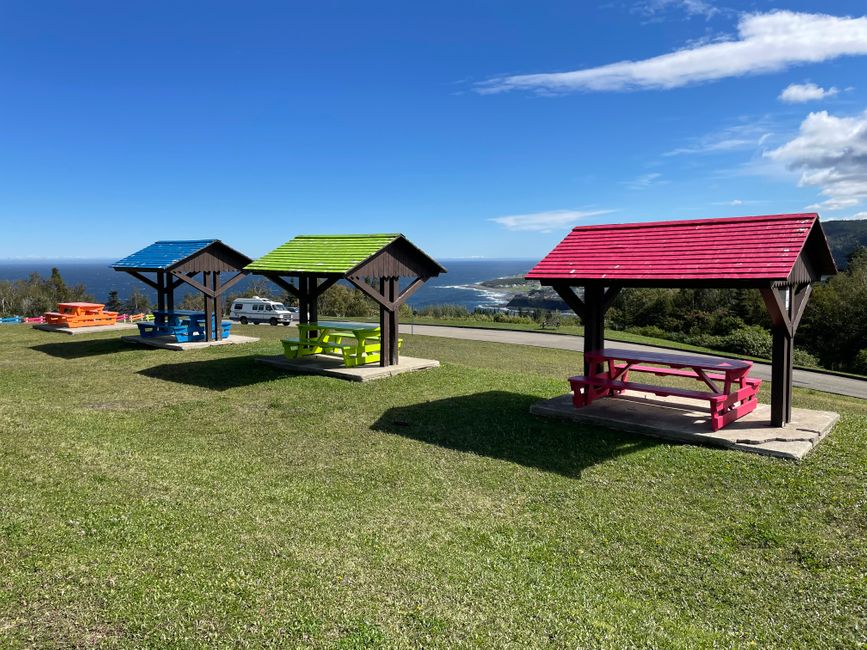
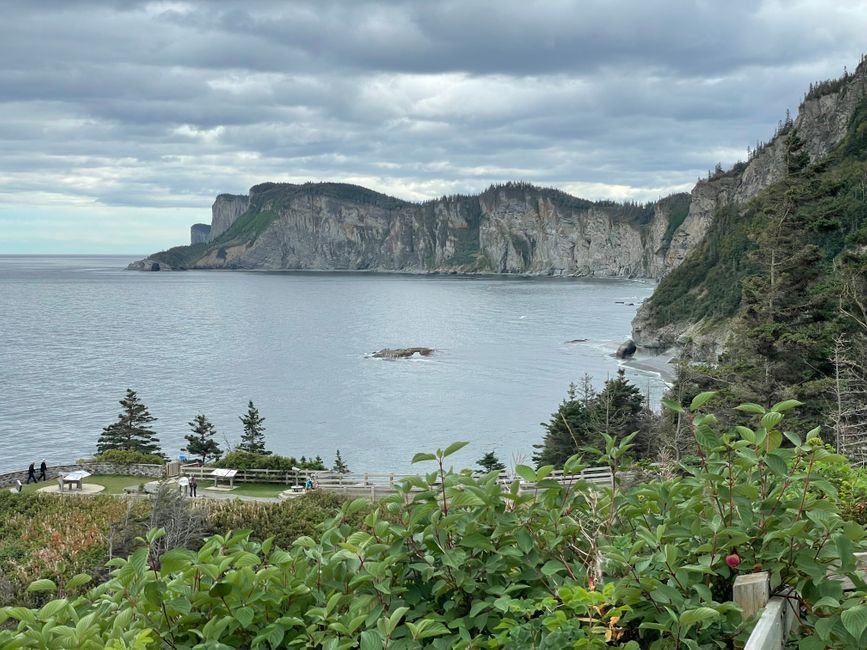
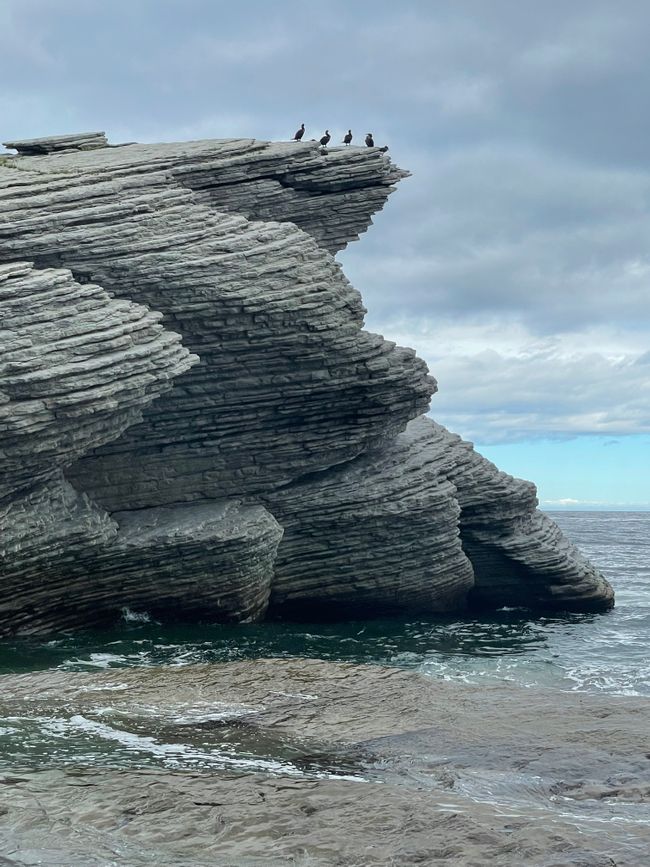
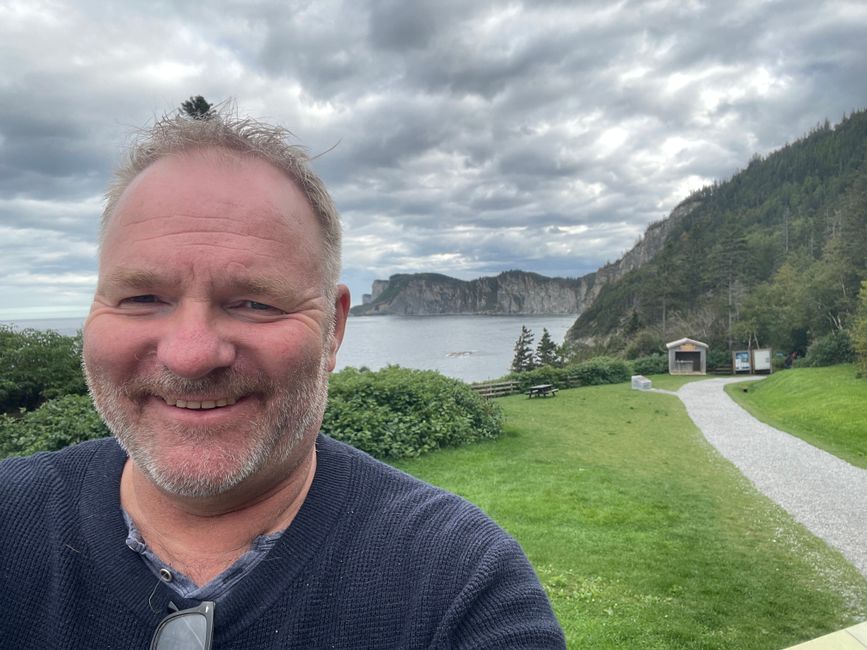
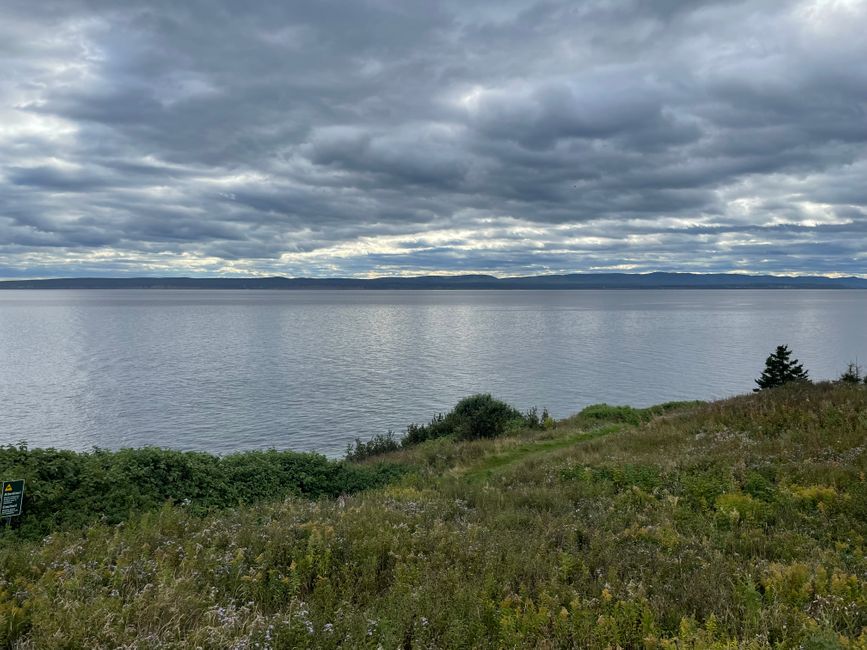
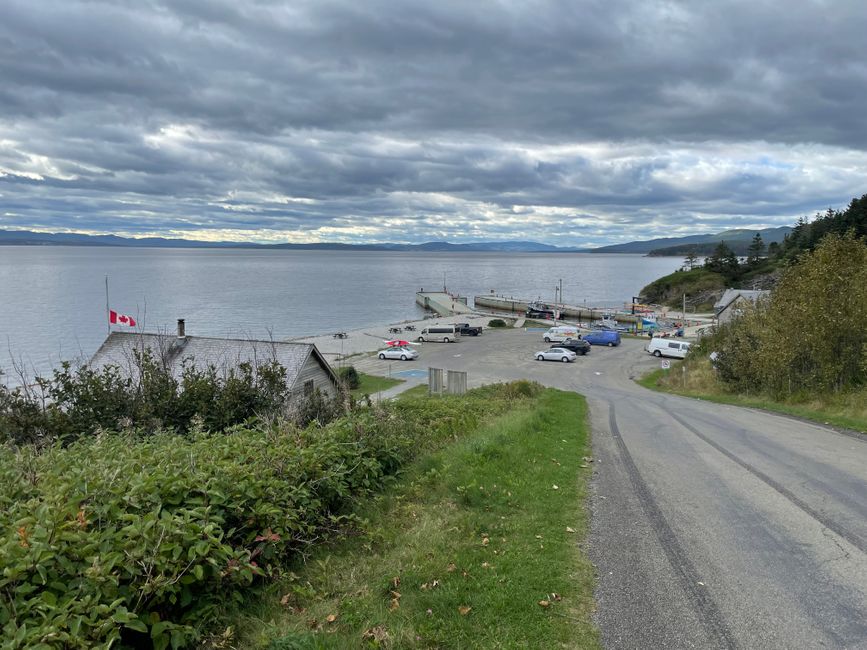
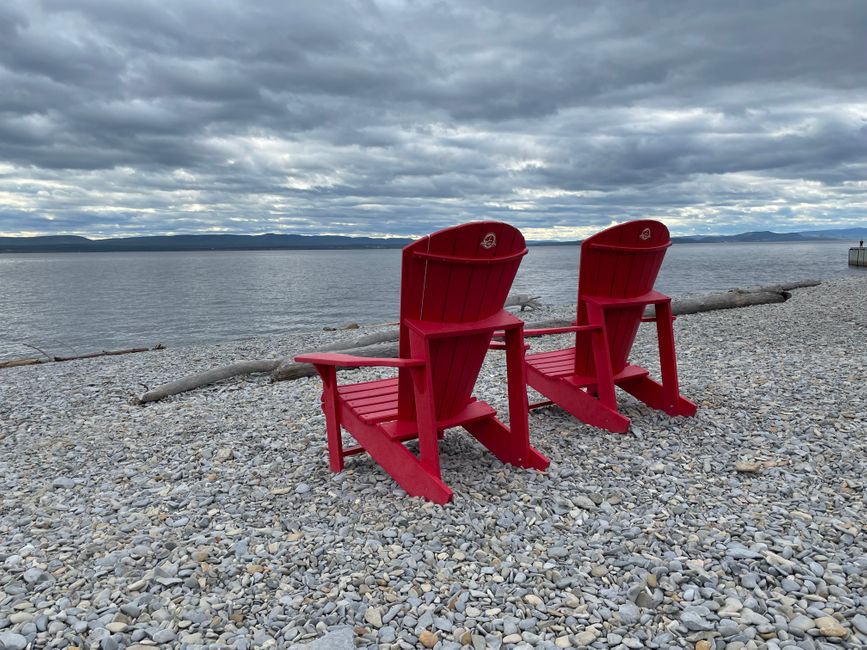
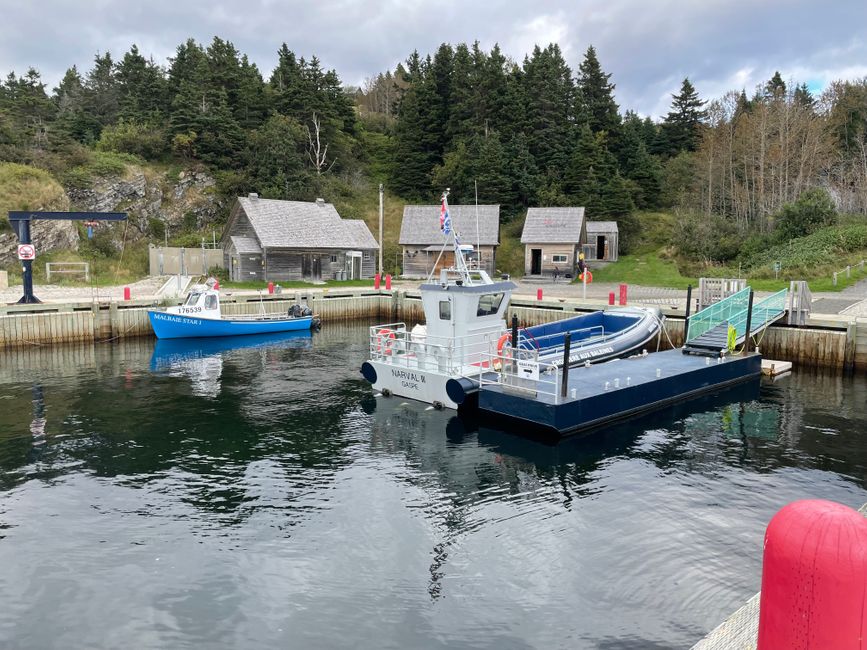
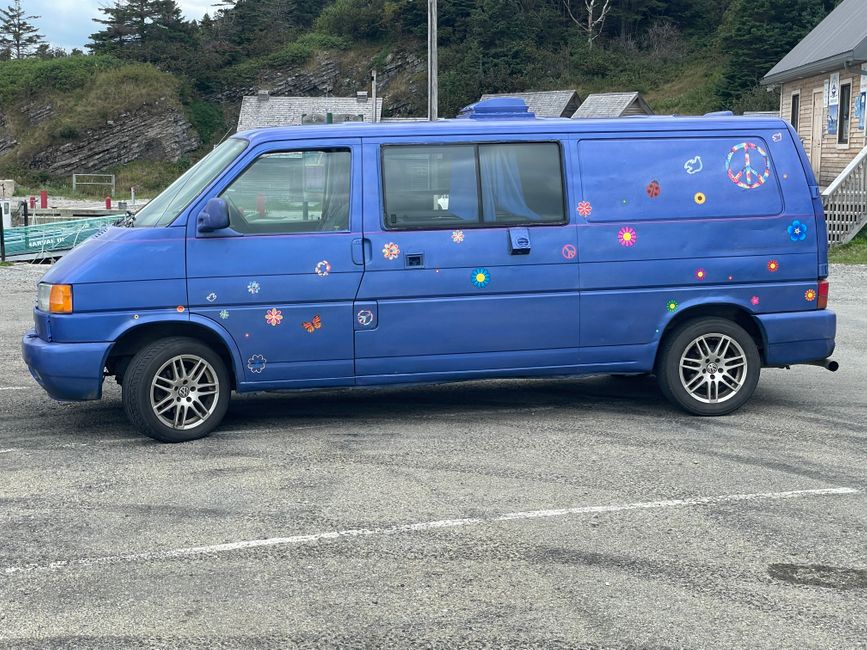
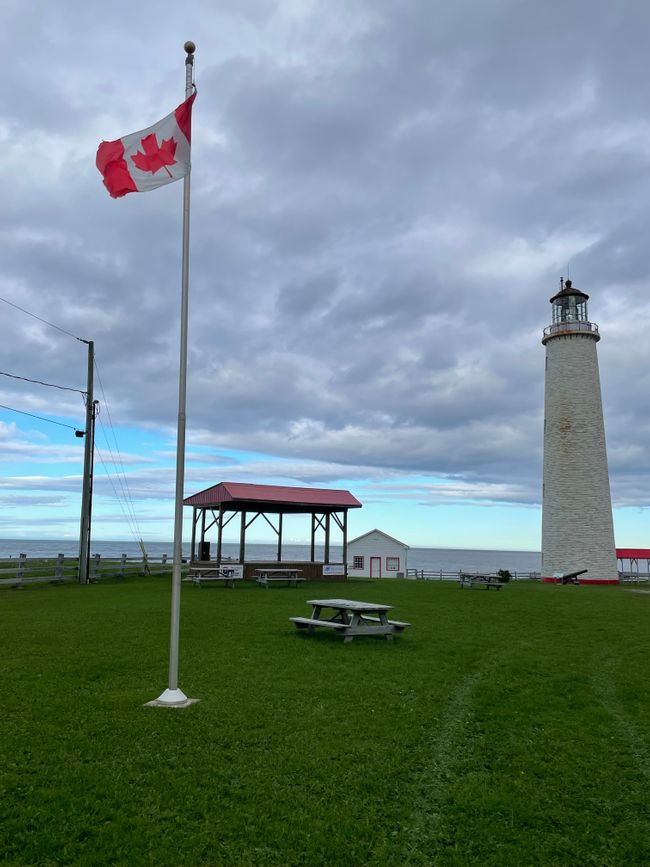
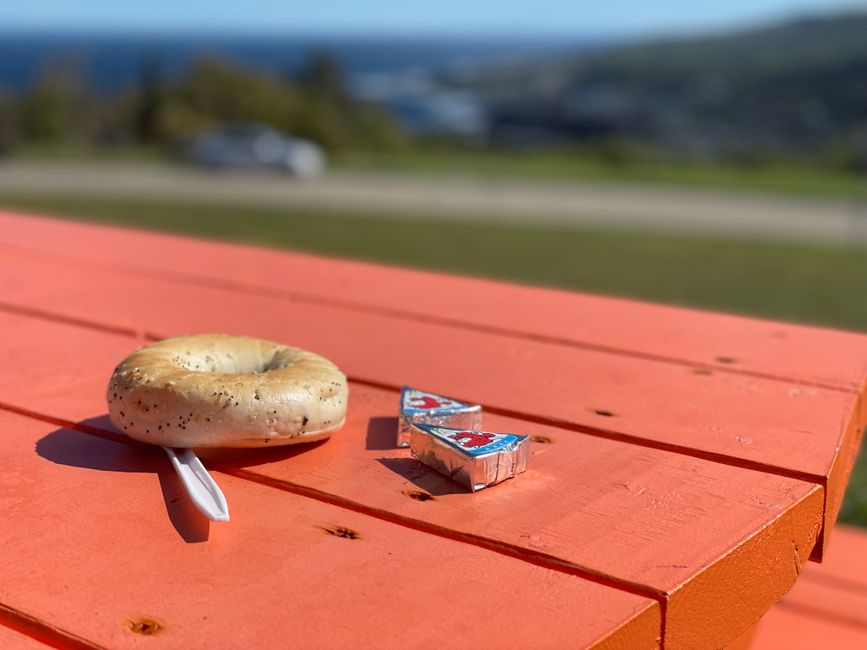
ସମ୍ବାଦପତ୍ରକୁ ସବସ୍କ୍ରାଇବ କରନ୍ତୁ |
Last night it rained. The motel parking lot is covered with puddles. I have my breakfast - a cup of coffee and 3 cookies - inside. I originally wanted to go out, but the wind is too strong for me, even though the rain has stopped. I drop off my key at the reception and slowly get used to losing a few words in French. Or rather, what I consider to be French. Well, it was enough for a smile.
About 5 km later on Highway 132, which will be my constant road home today, something bizarre happens. A car in front of me brakes without indicating any change in direction. Since I know that this often indicates a left turn, I hold back and stay at a safe distance. The driver seems unsure of what they want. Everything seems uncoordinated. Then the car comes to a complete stop, and I think maybe they don't want to turn left after all, because the blinker is not activated. But suddenly the car crosses the oncoming lane and pulls into an empty parking lot, and at that moment another car also turns right into that lot. The crash as the two collide is such an ugly sound that it rings in my ears for kilometers afterwards. A completely bizarre situation, and for a moment I consider whether I should stop, but then I see in the rearview mirror that several drivers are doing the same and also turning into the lot. And I note to myself that this was one of the strangest accidents I have ever seen. Completely absurd.
In this section of my journey, Highway 132 is by far the most beautiful route so far. Steep cliffs rise to the right, and the road is built right between the sea and these cliffs. Occasionally there are pullouts where you can enjoy the coastal landscape more extensively than when driving, and in each bay that offers enough space, there is a small town. Sand beaches are still mostly absent, except for in the bays where a river flows into the sea, there is sometimes a small section. Occasionally a waterfall rushes down the steep cliff from the right, also finding a new home for the water. Truly remarkably beautiful. Navigating this coast has been incredibly worthwhile.
My destination for today is the Forillon National Park, a small point in the furthest east of the province of Quebec, after already visiting Gros Morne, the likely northernmost point of my journey, in bright sunshine. Gros Morne is also the famous national park in Newfoundland that I was able to visit in 2018, as well as the second-highest mountain there. When you recognize names, memories go on a roller coaster ride.
The park has 2 entrances, one in the north and one in the south, and I first drive to the one in the north. I can't go any further at a parking lot, so I decide to hike a little further, but I quickly regret it. The slope exhausts me. It is so steep that I give up. One of the unpleasant side effects of my asthmatic bronchitis, which I have been dealing with since 2019. So I turn around gasping after about 1 km, feeling as old as I am, and think about all the hikes I could still do in 2017/2018. Don't postpone anything as long as you still can. A little disappointed, I sit down at one of the many picnic tables and enjoy a dry bagel with a purple Grape Gatorade. The latter is not mine, it tastes really disgusting.
Next table over is funny. A young couple, visibly better on foot than me, has unpacked a gas stove, and after the guy goes to fetch water with a cooking utensil in the toilet, and it really looks like he's going to empty his bedpan there (it's hilarious as he passes me), he comes back after a few minutes and pours something from a bottle into it while it simmers on the stove. He fumbles so clumsily and instead of just filling the bottle with a little water and shaking it, he scrapes it dozens of times with a spoon to get the last bit into the pan. When the mush is ready after some stirring, both sit there and silently devour the porridge from the bedpan. Pure comedy.
The south entrance of the park is about 10 km further on Highway 132 and there is no road that connects the two parts. I drive the road until it ends, and I skip the hike from this point and instead I go to a wharf that offers a great view of a bay of the Gulf of St. Lawrence, the largest estuary in the world. I know from reading that the difference between an estuary and a delta is that in the former, the sediment, washed away by the tides, does not settle, thus keeping the estuary mouth free. Just like at the mouth of the Elbe.
On the wharf, I have a brief conversation with Serge, a Francophone from Montreal who wants to go mackerel fishing here. He doesn't need a fishing license in the sea, but he can only catch a maximum of 10 fish per day. Success rate so far: zero. He says he is as successful with that as he was as an artist in the 70s trying to make a living in Montreal. At least he speaks fluent English. And when I ask him about it, he says that in this part of Canada, people often don't speak English, but in Montreal, they all do. I'm starting to warm up to the idea that they just didn't like me. When I ask if he's here on vacation, he says he came earlier but his van broke down. I don't take a picture of Serge, this sixty-eight-year-old - but I take one of his vehicle.
As I say goodbye to Serge without shaking hands, COVID-style, I briefly consider going to a supermarket. But I'm too tired, and the nearest one is 30 km away. So I go to my motel, unfortunately not facing the sea, and live off my cookies and the last bagel. And I decide to pay more attention in Nova Scotia to having good restaurants near my accommodation. I want lobster, crab, oysters, and fish. And soft-serve ice cream. Absolutely.
ସମ୍ବାଦପତ୍ରକୁ ସବସ୍କ୍ରାଇବ କରନ୍ତୁ |
ଉତ୍ତର
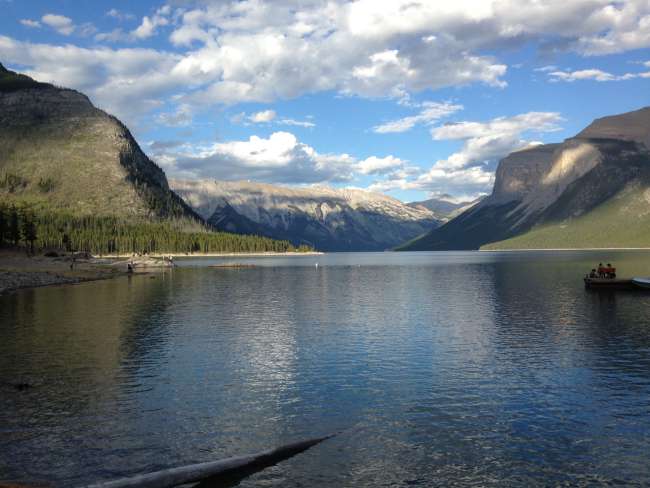
ଭ୍ରମଣ ରିପୋର୍ଟ କାନାଡା |
